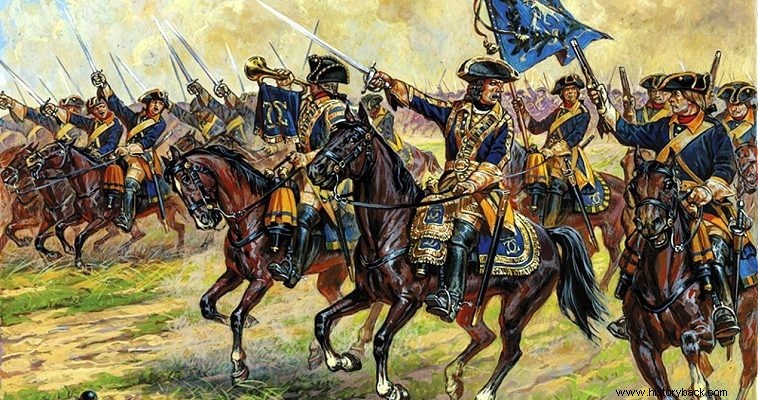
The Great Northern War began in 1700 when Russia, Saxe-Poland and Denmark considered an attack against Sweden and its new king Charles XII possible. The latter, however, did not cooperate at all and in fact emerged as one of the greatest military leaders in world history, crushing one enemy army after another.
In Grodno , in fact, in 1708, perhaps he marked his peak in terms of his speed, tactical flexibility and shrewdness, at the very moment when he had against him the Tsar of Russia himself, Peter and 11 times more of his own soldiers.
In the winter of 1708 the Swedish army had advanced deep into what was then Polish (now Belorussian) territory. On January 26, 1708 Charles IB of Sweden with his small but elite army he was within striking distance of the city of Grodno when he was informed that his rival Tsar of Russia M. Peter had arrived in the city with 9,000 men. This force was the vanguard of the Russian army and accompanied the Tsar.
Charles immediately thought that with a powerful blow he might be able to put Russia out of the war by capturing or killing the Tsar himself. That is why he moved in a flash against Grodno at the head of only 800 men, disregarding the 11:1 at the expense of the force ratio . “Speed is power”, quotes an old military quote and the warrior Swedish king set out to put it into practice.
Supply
On the outskirts of the city flows the river Neman. On it there was a bridge on which Peter the Great had arranged 2,000 of his men for the purpose of guarding it. Suddenly the Russian soldiers on the bridge heard screams and in terror saw the Swedish king with his sword raised charging at the head of his 800 horsemen, charging into the darkness. Before the raid, the Swedes prayed and then chanted "Go Poa" (loosely rendered "upon them").
The Russians tried to react but in their panic their fire was mostly off target and only 11 Swedes were killed. The losses of the Russians were not heavy – 56 dead – but the panic caused was indescribable. Inside the city, the panic reached the headquarters of Peter the Great, who in fear ordered an immediate retreat behind the Berezina River. It was not until dawn that the Russian tsar realized what had happened and, furious with rage, he ordered 3,000 of his men to retake the city from the few Swedes and if possible kill or capture the insolent Charles.
The Russians let night fall and attacked. However, they fell upon the Swedish guard of only 30 men who were awake and beyond all expectations they were repulsed! The shots woke up Charles and his other men who now attacked the enemy in turn and scattered them with heavy losses for the vanquished... It was perhaps the most embarrassing defeat of the Russian army and its tsar.
